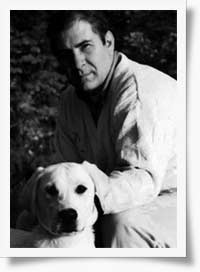
Most of our formal education is dedicated to the perfection of skills without considering their application. For many people, including myself, the result is often a confusion of means and ends which first manifests itself when we graduate from school and find ourselves wondering if we really want to do what we are told we have been prepared to do.
As Martin Luther King said, “Every person must feel responsibility to discover his mission in life.” For many people, this is a question we never ask until it is forced upon us.
More often than not, direction can be found in response to a simple question. If God is love, “What does Love require of you?”
You can begin to divine your mission in life by considering how your talents might prove useful to others. The use of your talents to pursue your own interests is a dry hole – more than a meaningless exercise, a waste of your unique opportunity to change the world.
What Love requires is that you listen with your heart and use the talent and skill you have been given to some good end, to do that which if you do not do will remain undone. There is pride and dignity in any activity that helps. There is satisfaction, joy, and fulfillment in any job worth doing.
So long as what you do serves or contributes to the well being of others, as Mother Teresa says, it doesn’t matter what you do. “What matters is the love you put into what you do.” The most meaningful people in our lives do small acts with great love.
God has given each of us the capacity to achieve some end and the talent to serve some purpose. No matter what you think you are prepared to do, no matter where you think your life should lead, there is no success, no satisfaction apart from this purpose.
Each day you will meet indifference, ingratitude, disloyalty, dishonesty, greed, ill will, and selfishness. A life of love requires we answer with honesty, integrity, compassion, good will, and selflessness.
Love requires you to be not less human but more human. Love requires that we listen, not with our heads but with our hearts, and act – as God would act – with compassion for all living things.





